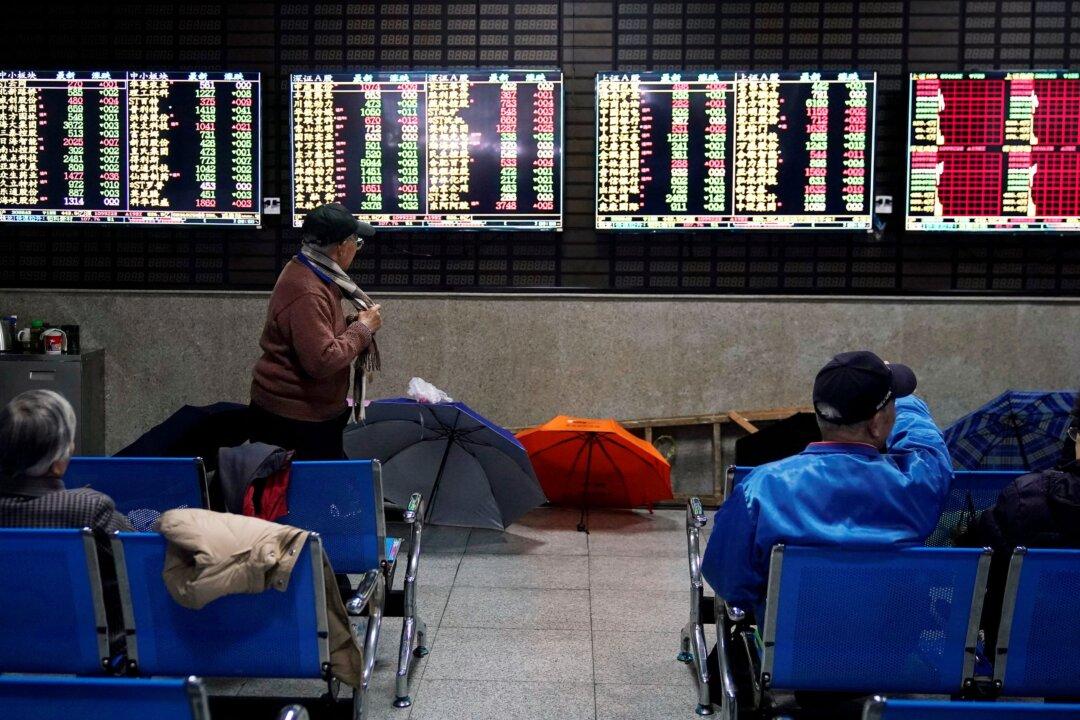LONDON—Global shares got a tech boost to help tee up a third straight week of gains on Friday, despite growing inflation concerns, while the dollar dipped and oil prices bounced off their lows.
MSCI’s broadest gauge of global shares was up 0.1 percent, 1.4 percent higher on the week and just 0.8 percent off its all-time high. Europe’s top markets were all up, with the biggest, Britain’s FTSE 100, up 0.4 percent.





